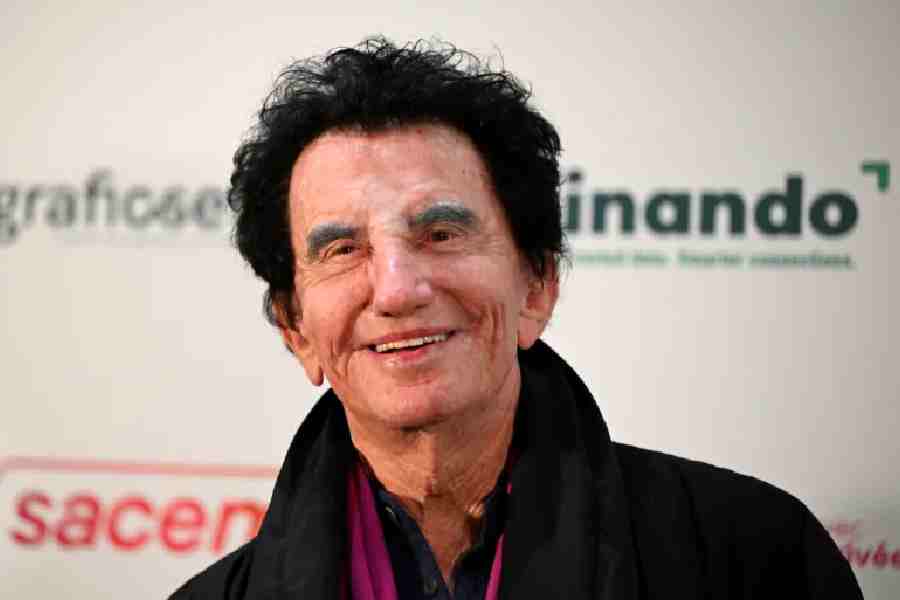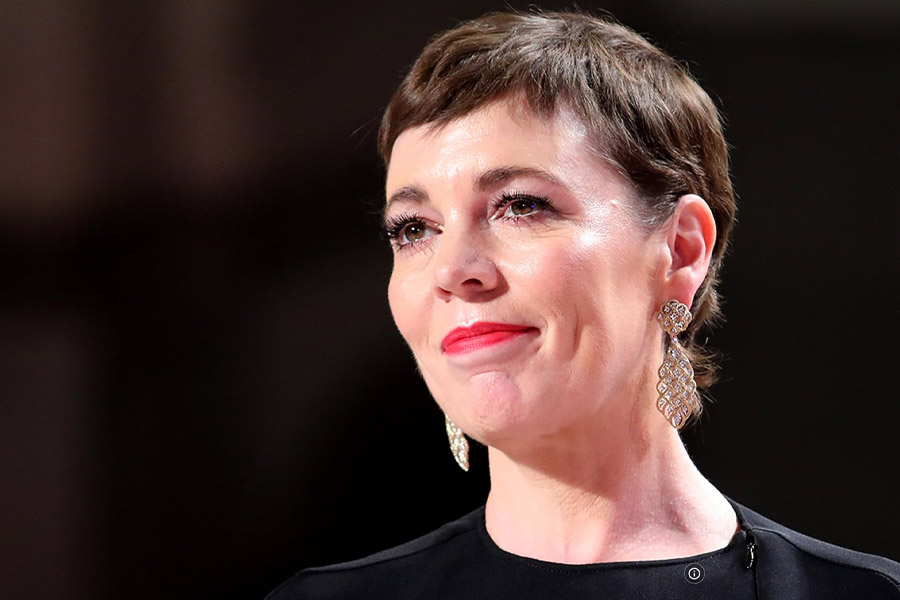 |
| Soumitra Chatterjee in and as Raja Lear |
To prepare for his role in my film Podokkhep, I had given Soumitrakaku (Chatterjee) the F. Scott Fitzgerald classic The Curious Case of Benjamin Button. It was a fantastical story of a man who physically grows old with age, but mentally he progresses towards childhood.
After interacting with Soumitra Chatterjee at close quarters for six years since then, I am amazed as to how that story reflects who he is as a person. As all of us glow in pride with his Dadasaheb Phalke Award, I harped back to a question a reporter friend of mine asked me recently — “What is it with you and Soumitrada?” He was alluding to the fact that Soumitra Chatterjee seems to be a constant in my films.
Since a lot of people had asked me the question about the personae behind this great actor, I reminisced on the many facets of this man which makes him a wonderful and enigmatic human being. How does one even begin to describe him?
The best is to jot down a smorgasbord of events and interactions, which will give a vignette of the person. In fact, that is the best way to describe him since it is almost impossible to define him.
To answer the question of my reporter friend, there are two specific reasons that I seem to be attracted to him in terms of association. One is, he seems to have started a new career post-Satyajit Ray, whether it is films or theatre. In films, that phase pretty much started after his wonderful portrayal of a blind poet in Goutam Ghose’s Dekha.
Ever since, he has given many other memorable performances. And how can one not acknowledge his performances, whether in direction or acting in plays such as Homapakhi, Atmakatha and Raja Lear? He seems to be a tireless actor. So as a director, I have much to gain from his acting prowess.
The second reason for my affinity towards him is for purely selfish reasons. Working with him gives me an excuse to be with him and to extract whatever I can gain from his never-ending vistas of knowledge. Knowledge not only about films and acting, but life in general. His interests span from such apparently inane topics as the traffic system in Calcutta to the history of the Indus river, from the Istanbul of Orhan Pamuk to, of course, his almost obsessive love for cricket.
On the topic of cricket, let me relate an incident which fascinated me. It was during the National Awards ceremony in 2008 where he received the Best Actor for Podokkhep. That year Goutamda (Ghose) and Bumbada (Prosenjit) were also recipients. We had a wonderful adda in Soumitrakaku’s hotel room — talking about Bengali cinema to Soumitrakaku reminiscing about when Bumbada was born, and about Satyajit Ray. After that, when I was alone in his room with him, honestly I was feeling a bit of fear since just a few hours back I had seen the stature of this man amongst the luminaries of Indian cinema. Normally I am in awe in front of him but not fear. But I remember distinctly that day I was in fear of him.
To my amazement, and that is what makes him a stand-out as a person, he was unmoved by this entire hullabaloo. Not because of disdain but as is usual with him, that day he was more worried about how the IPL would harm Ishant Sharma’s bowling! He went on and on as to how such talents will be destroyed by the IPL. That was seriously vexing him.
He seems to be oblivious of his stature. I remember I had asked him once that given the almost god-like way he is treated in Bengal, isn’t it a problem for self-assessment of his work? He acknowledged the problem and told me that he has to be his most stringent self-critic. And he thanked Deepa kakima (his wife) for being his greatest critic.
On a separate note, I remember once while shooting I went to his make-up room to call him for a shot when he was cursing someone as to how people can tolerate this face any longer. Soon I realised that he was sitting in front of a mirror and telling this to himself! We had a hearty laugh on that.
He always brings in a youthful vibe on the sets. While we were shooting Dwando, often he would break into impromptu songs accompanied by Barunda (Mukherjee, our cinematographer) and Ananya (Chatterjee), while I waited patiently for their songs’ completion after which I called for the lights. I thoroughly enjoyed that camaraderie.
Now he is nearing 80 and old age has caught up with him physically. A couple of years back, he was detected with cancer and he had to go to London for treatment. There he stayed at a friend’s house — Amit, who frequently collaborates with him on his plays, and his wife Paromita, a reputed singer.
When I asked him about his treatment there, his first reaction was to tell me how he got a forced vacation and he took that opportunity to make himself abreast with current films and new-world literature. Then he went on to explain to me with scholarly precision the treatment he was undergoing. Such is the vitality of this man that, rather than being morose about facing cancer, he took this as an opportunity to satiate his curious mind.
I had asked him once that if he hadn’t been an actor, what would he have become? After some thought he said perhaps he would have become a carpenter. That was an unpredictable answer but knowing him well I know he was serious. Given the person he is, I can bet that he would have been enthralled with the myriad mysteries of wood carving and soak himself with wondrous delight. We would have lost out on a truly international figure in the history of cinema but I know he would have been equally happy.











